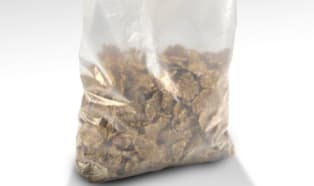
Arnitel Eco monofilament for 3D printing systems
API Institute developed successfully an Arnitel Eco monofilament for 3D printing systems of Almteq.

API Institute developed successfully an Arnitel Eco monofilament for 3D printing systems of Almteq.

Production of high quality thin blown film is possible with a family of advanced bimodal high density polyethylenes (HDPE) from SABIC. There are currently two grades in the family, SABIC HDPE FI0644 and a higher density grade with higher flow, SABIC HDPE FI1157.

SABIC’s Innovative Plastics business is showcasing here at Plast 2012 its broad and deep portfolio of industry-leading sustainable materials that help customers design, develop and differentiate environmentally responsible products in three key ways.

New polyurethane insulation system enables even greater energy and cost efficiency.

There was a huge conference gathering the world experts from the pipe market.

As indicated by customers, SABIC’s latest SABIC Vestolen A RELY bimodal high density polyethylene grades are able to meet the stringent requirements for typical pressure pipes, as well as helping customers with considerable energy savings when producing the pipe.

Random copolymers enhanced in clarity and dimensional stability using Milliken’s additive Millad NX 8000.

Every child loves pint-sized versions of their parents’ belongings. To fulfil those desires, Flux Furniture B.V. has created a miniature version of its award-winning foldable and portable Flux Chair.

SABIC and Equipment Technologies come together to create Coextruded Lexan SLX and Cycoloy resin hood for new apache agricultural sprayer.

The Vestamid Terra family of polyamides from Evonik Industries has been certified as "bio-based" by independent institutes.

At NPE 2012, SABIC’s Innovative Plastics business announced a major new sustainability milestone with its longstanding customer, Volvo Trucks: the first use of an up-cycled material in a North American heavy truck from post-consumer recycled (PCR) content.

SABIC’s Innovative Plastics business today announced at NPE 2012 important new additions to its flagship portfolio of high-performance Lexan polycarbonate (PC) materials.